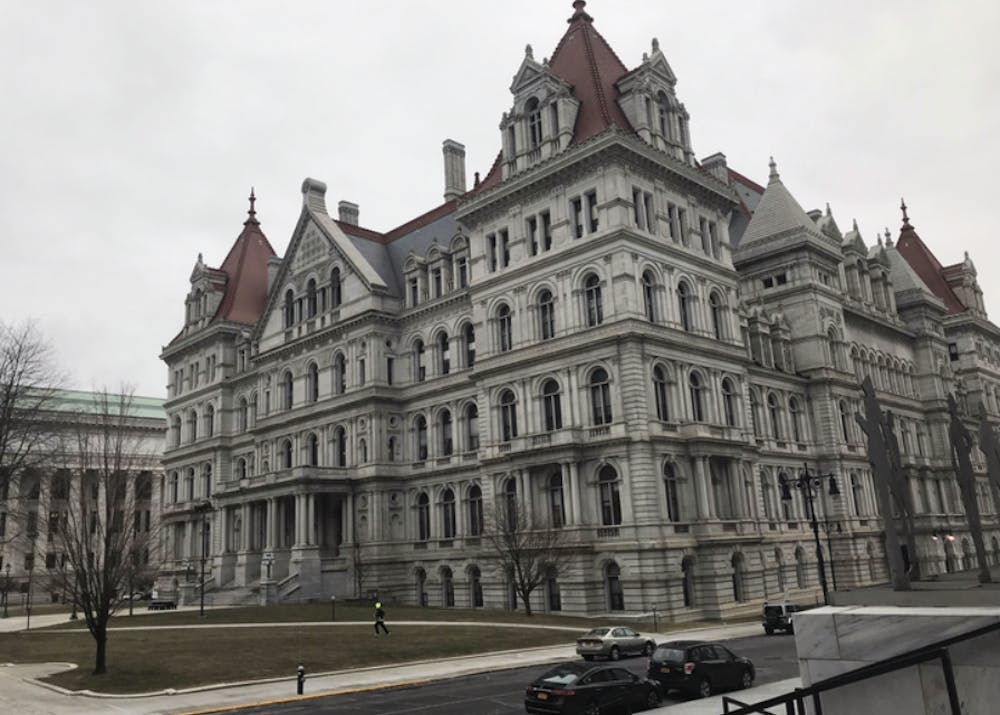The New York State Coalition for Open Government held a press conference Monday to discuss two bills that would reform Open Meetings and Freedom of Information laws, in honor of Sunshine Week, a celebration of open government and the free press.
Assemblymember Amy Paulin (D-Scarsdale) introduced the bills, which aim to enhance government transparency. Paulin’s proposed bills — A.1228/S.1150 and A.4677/S.4863 — would require more information to be made available to the public.
Four words — “to the extent applicable” — is the driving force behind this legislation.
According to The New York Coalition for Open Government, these four words have allowed 40% of school boards, 70% of villages and 90% of college board of trustees meetings to go undocumented.
“If it is being discussed at a meeting, it should be available to the public,” Paulin said.
Paulin explained that this phrase has been “used to evade the law.” As a result, she insisted on changing the language.
Assembly bill A.1228, which has been co-sponsored by three other assemblymembers and two senators, requires meeting documents to be posted online at least 24 hours before a public body meeting; the meeting to be streamed to the public; video of the meeting to be posted on the website within five business days of the meeting; and meetings to be retained for at least five years.
Assembly bill A.4677, which has been co-sponsored by three other assemblymembers and three senators, would eliminate fees associated with Freedom of Information Law requests when an electronic copy already exists.
Paulin is also pushing to reform the existing Freedom of Information law to eliminate associated fees.
“Once you can reduce it into [electronic documentation], the public should not be charged,” Paulin said. “That speaks to making sure that the public has access to information and can be a valuable player in government.”
These changes would also have a profound effect on student journalism: Open Meetings law applies to universities as well.
“UB is a public institution, so it is even more important that our SUNYs and CUNYs, which are heavily funded by New York State dollars, make information accessible,” Paulin said. “I think these laws will do that.”
Community members and advocates chimed in during the press conference, with one individual arguing “we are way behind, we need to come up to 2021.”
Paul Wolf, president of The New York Coalition for Open Government, said there is a public interest in this type of policy. He cited a recent Buffalo City Council meeting that brought over 18,000 Facebook viewers as evidence.
New York State lawmakers have just 76 days left in the legislative session to push through these amendments. As the pandemic further drives the use of emails and Zoom meetings, Paulin stresses there’s an even greater need to get this done.
“[The] time has come, there is no question that during this pandemic everyone has learned to adjust and do things differently,” Paulin said. “What we are changing is a reflection of that.”
Jack Porcari is an assistant features editor and can be reached at jack.porcari@ubspectrum.com

Jack Porcari is a senior news/features editor at The Spectrum. He is a political science major with a minor in journalism. Aside from writing and editing, he enjoys playing piano, flow arts, reptiles and activism.





